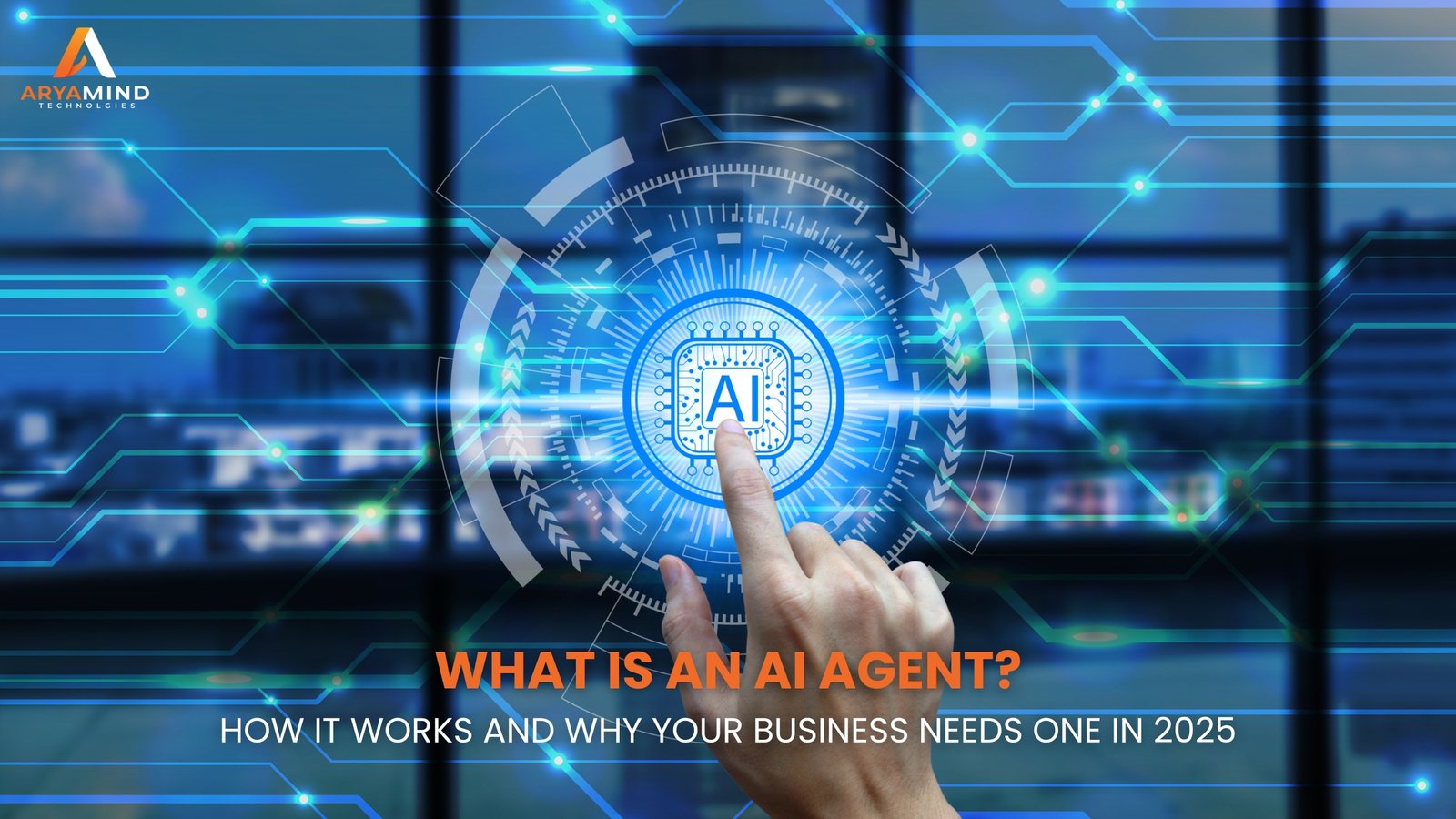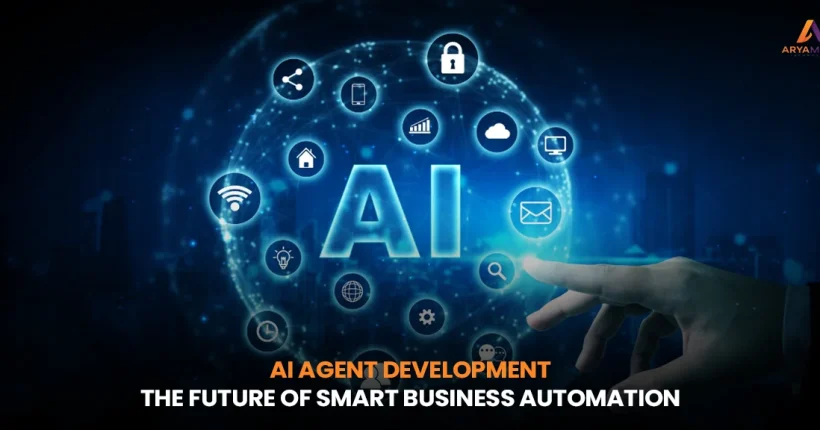Introduction
Artificial intelligence (AI) is transforming businesses across industries, and one of the most powerful innovations driving this change is AI agents. These intelligent systems automate complex tasks, enhance customer experiences, and improve business efficiency.
As we enter 2025, AI agents are becoming a necessity rather than a luxury. But what exactly are AI agents? How do they work? And why should your business integrate them into its operations? In this detailed guide, we’ll explore everything you need to know about AI agents and their impact on modern business workflows.
What Is an AI Agent?
An AI agent is an autonomous software entity designed to perceive its environment, analyze data, make decisions, and execute tasks without constant human intervention. Unlike traditional automation, AI agents adapt, learn, and optimize processes over time.
Key Characteristics of AI Agents:
- Autonomous Execution: Operates independently to perform tasks with minimal human input.
- Machine Learning & Adaptability: Improves its performance based on past experiences and new data.
- Decision-Making Capability: Uses AI models to analyze information and determine the best course of action.
- Integration with Business Systems: Connects with CRM, ERP, cloud platforms, and other business tools.
- Natural Language Processing (NLP): Understands and responds to human language in chat or voice interactions.
How AI Agents Work
AI agents operate using a combination of machine learning algorithms, natural language processing, and automation frameworks to understand and execute tasks. Let’s break down the process:
1. Perception and Data Collection:
AI agents gather real-time data from multiple sources, including databases, customer interactions, websites, IoT devices, and APIs. This data allows them to understand the context of a task.
2. Data Processing and Analysis
- Machine Learning Models to detect patterns and predict outcomes.
- Natural Language Processing (NLP) to understand and generate human-like responses.
- Computer Vision (for AI agents in image/video-based tasks) to interpret visual inputs.
3. Decision-Making & Task Execution
Using AI-driven logic, the agent determines the best action to take. This could involve responding to a customer query, automating a business process, or making recommendations based on data insights.
4. Continuous Learning & Optimization
AI agents improve over time by learning from new interactions and data. They self-optimize their performance, making them increasingly efficient and effective.
Types of AI Agents in Business
AI agents come in different forms, each designed for specific business applications. Here are the most common types:
1. Conversational AI Agents (Chatbots & Virtual Assistants)
- Used for customer service, sales inquiries, and internal support.
- Examples: Chatbots on e-commerce websites, AI-powered virtual assistants like Siri and Alexa.
2. Intelligent Process Automation Agents
- Automate business workflows, reduce manual tasks, and optimize processes.
- Examples: AI-driven HR onboarding bots, automated data entry systems.
3. AI-Powered Recommendation Agents
- Analyze user behavior and suggest relevant products, services, or content.
- Examples: Netflix’s content recommendations, Amazon’s personalized shopping experience.
4. Predictive Analytics Agents
- Analyze historical data to forecast future trends and outcomes.
- Examples: AI-driven stock market analysis, sales forecasting tools.
5. Cybersecurity AI Agents
- Detect and prevent cyber threats by monitoring networks and identifying anomalies.
- Examples: AI-driven fraud detection in banking and finance.
Why Your Business Needs an AI Agent in 2025
AI agents are no longer futuristic concepts; they are practical tools that can enhance productivity, reduce costs, and improve decision-making. Here’s why integrating AI agents into your business strategy in 2025 is a game-changer:
1. Automate Repetitive Tasks & Save Time
AI agents handle time-consuming tasks like data entry, appointment scheduling, and customer inquiries, freeing up human employees for higher-value work.
2. Improve Customer Experience
With 24/7 availability, AI-powered chatbots and virtual assistants provide instant responses to customers, ensuring seamless interactions and increased satisfaction.
3. Enhance Decision-Making with Data-Driven Insights
AI agents process large volumes of data to provide actionable insights, helping businesses make informed decisions faster.
4. Reduce Operational Costs
Automating business processes with AI agents leads to significant cost savings by minimizing manual labor and improving efficiency.
5. Scale Business Operations Efficiently
As businesses grow, AI agents can handle increased workloads without requiring additional human resources, making scalability easier and more cost-effective.
6. Strengthen Cybersecurity
AI agents continuously monitor networks for suspicious activity, reducing the risk of cyberattacks and data breaches.
7. Personalize Marketing & Sales Strategies
AI-powered recommendation engines tailor marketing campaigns based on customer preferences, increasing engagement and conversion rates.
Real-World Applications of AI Agents
1. E-Commerce & Retail
- AI chatbots provide instant customer support.
- AI agents recommend products based on browsing history.
2.Healthcare
- AI-powered virtual assistants help patients schedule appointments.
- Predictive analytics agents detect disease patterns and assist in early diagnosis.
3. Finance & Banking
- AI agents detect fraudulent transactions and assess credit risk.
- Automated investment advisors provide personalized financial planning.
4.Manufacturing & Supply Chain
- AI-driven automation optimizes inventory management.
- Predictive maintenance prevents equipment failures.
4. Human Resources
- AI-powered recruitment agents filter job applications and schedule interviews.
- HR chatbots assist employees with common queries.
Future of AI Agents: What to Expect in the Coming Years
As AI continues to evolve, AI agents will become more intelligent, versatile, and capable. Key future trends include:
- Hyperautomation
AI agents will work alongside robotic process automation (RPA) for end-to-end automation.
- Advanced Conversational AI:
Virtual assistants will have near-human-like conversational abilities.
- AI-Powered Decision Intelligence:
Businesses will rely on AI agents for strategic planning and real-time decision-making.
- Integration with the Metaverse & IoT:
AI agents will interact with smart environments and virtual worlds for seamless automation.
Conclusion
AI agents are revolutionizing how businesses operate by automating tasks, improving efficiency, and enhancing customer experiences. As we move into 2025, businesses that embrace AI-driven automation will gain a significant competitive advantage.
Whether you need a chatbot for customer service, an AI-powered recommendation engine, or a predictive analytics tool, integrating AI agents into your business strategy is no longer optional—it’s essential for future success. Now is the time to leverage AI technology and stay ahead in the rapidly evolving digital landscape.



